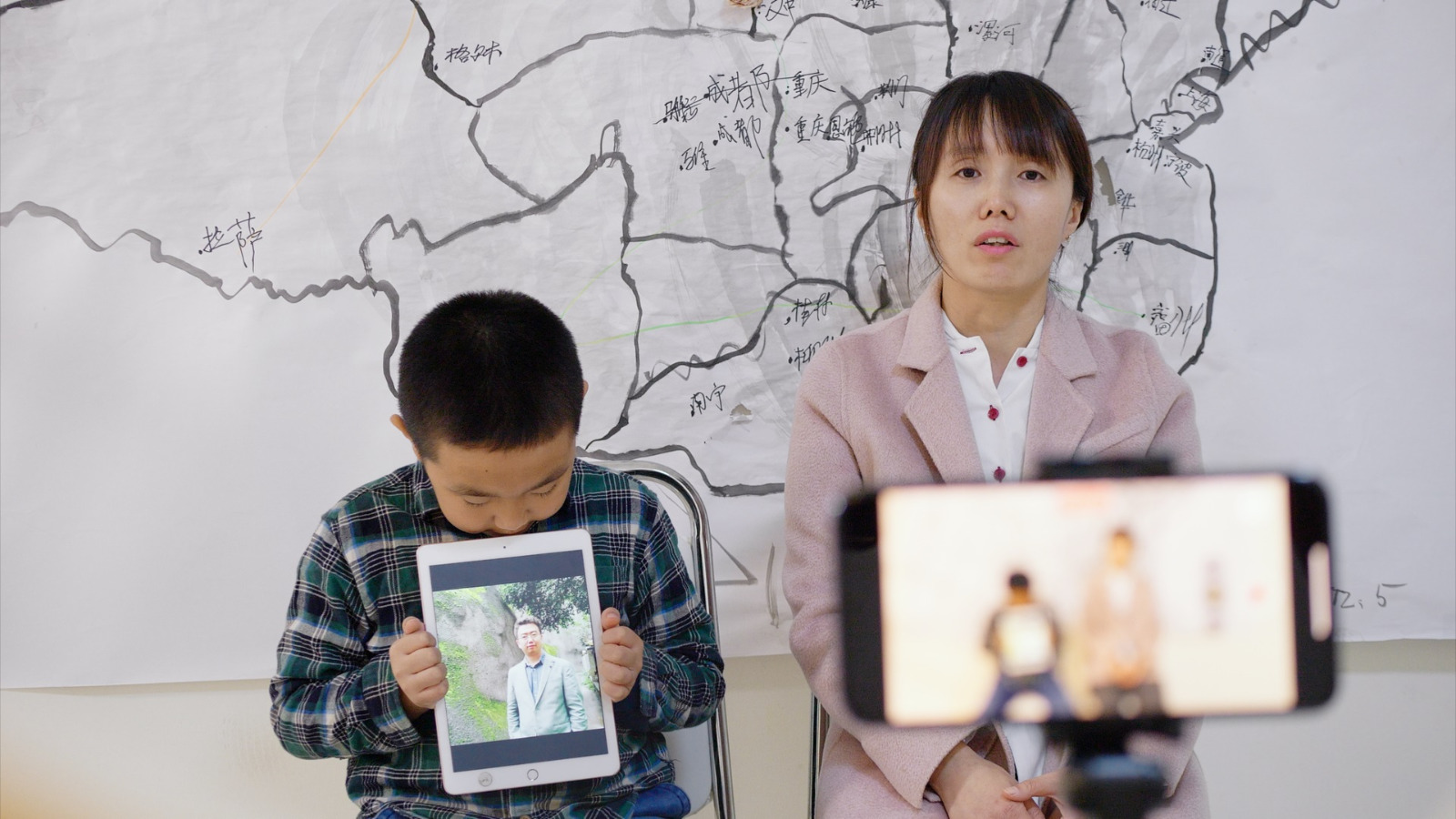Total Trust
(German/Netherlands/China, 97 min.)
Dir. Jialing Zhang
Programme: Special Presentations (North American Premiere)
After the cameras went up outside Sophia’s apartment for simply reporting the truth, she would read passages from Orwell’s cautionary masterpiece 1984 and sing songs from the Victor Hugo-sourced musical Les Misérables. It’s fine to sardonically recite to the police state overlords from the comfort of your couch, but as we learn from the end-card of Total Trust, Sophia’s now in prison for trying to leave the country to take courses in the U.K.
Such is life under the Chinese surveillance state, a high-tech mesh of video capture, facial recognition, microphones following voice prints, and facial recognition, partnered with people-on-the-ground spying on neighbours at the behest of authorities, all to control behaviour and snuff out even the embers of dissent. This is a nation where more points are deducted on your “social credit score” than gained for 300+ hours of community service. The punishment can be as subtle as being denied a promotion or as extreme as imprisonment, torture, or death.
The paradox at the heart of China’s political system, one that promotes socialist equality while creating a massively striated social and political set of divisions, benefits enormously from the recent influx of technological tools, which, as one participant in Total Trust wryly points out, makes totalitarianism all that much easier to implement. In all the anti-China rhetoric from the West concerning economic or even social differences, the complete control of all activity, right down to one’s private spaces, is both too insidious and too ephemeral for most people to fully comprehend, save for superficial calls for freedom. What Jialing Zhang’s remarkably balanced and journalistically sophisticated film does is lay bare the mechanisms of the controls of the state with a keen yet unflashy eye. She allows the participants to either detail their own disgust or their proud participation in the spying on their fellow neighbours.
China is hardly alone in creating such mass surveillance and, even in liberal democracies, there are real challenges to what has long been argued to be a fundamental right to privacy. Still, people in North America decrying a police state, or railing against how cameras are used, would likely be shocked by the massive extent of how such aspects are implemented in China, with tens of millions of people participating directly in the clamping down in the behaviours and even expressed thoughts of their fellow citizens.
The tale of Total Trust makes Kafka’s nihilistic portraits look quaint, or Orwell’s prediction of Big Brother preventing thoughtcrimes too small in scope, given the addition of technologies undreamed of in the 1940s that can now insidiously escalate the capabilities of both surveying and stultifying dissent with superhuman efficacy. Through the human rights lawyers, we meet brave individuals who try to use the very mechanisms of state to hold those in power to account. From the family members who suffer for years apart from those incarcerated we see the private tragedies rarely discussed. Zhang then goes beyond this overt dynamic to even more complex forms of control, where state-wide COVID-19 controls are first used to prevent the purchase of flowers at a local shop, then later serve as an excuse to detain one character at a checkpoint while driving to her husband’s trial. Through cameras mounted in the car and footage captured by the subject herself, Total Trust captures the story from all angles: The child in the back of the car is whiney and waiting to move on, the mother in front barely keeps it together, the masked police outside the window look menacing, and the SWAT truck blocks the way flanked by bored looking men with rifles at the ready.
Yet within the same telling Zhang, who previously tackled the Chinese state with Nanfu Wang in One Child Nation and In the Same Breath, details the work of those who tracking who takes out the trash properly. We see those who gather in the hallways to prevent one participant from attending an international symposium (somehow video chatting wasn’t blocked, although there may be holes in the great firewall of China’s internet that may have been exploited).
Total Trust’s title is of course a complete antithesis to what’s truly taking place on a regular basis in China, where distrust is magnified in ways that truly make the nation the global superpower of surveillance states. With brave and open participation from all involved, this is an extraordinarily powerful set of stories that gives a far-to-rare glimpse into life under these restrictions, illustrating both the pragmatic political benefits for those in the state wishing to control behaviour, and the damaging effects on those that have the temerity to try and change the system for the better. It’s a haunting film, to be sure, but absolutely vital. In a land where half a billion cameras are pointed without permission, this is one camera bravely pointed by filmmakers who capture something both cautionary and extraordinarily compelling.











